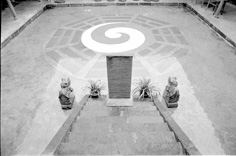

What is Chinese Medicine?
What is Chinese Medicine? That is a question that can take a lifetime of study to answer. However, what follows is a Readers' Digest version, if you will. There are also some links at the bottom to pages where others have answered the same question.
Chinese medicine is a complete system of medicine that is able to effectively treat any potential ailment. It has been in use in various places around the globe for over 5,000 years conservatively. Most people in the country think of Chinese medicine merely as acupuncture, but in truth it encompasses a strong herbal aspect, moxibustion, or the application of therapeutic heat, Chinese massage, or Tui Na, as well as acupuncture.
Root Cause
Chinese medicine approaches the ideas of disease and illness form a root cause point of view. In Chinese medicine we try to identify the root cause of the issue, thee underlying imbalance that is producing the symptoms. Chinese medicine views the body as a balanced and dynamic interplay of the forces off nature: wood, fire, earth, metal, and water. Each of these elements corresponds with organs inside the body and it is the harmony, or disharmony, between these forces or organs that creates health and disease.
Techniques
We use special diagnostic techniques, such as pulse and tongue diagnosis, as well as a very detailed history to determine the imbalances in your body that is causing your symptoms or illness. Then, we can use acupuncture and herbs to gently nudge your organs back into balance, eliminating the cause of the illness, and bringing about resolution of symptoms.
Acupuncture
Acupuncture works by activating points along the body's channels or meridians. Each organ is associated with a region of the body and in that region, there is a line which connects the acupuncture points associated with a particular organ. Each point has a known function. Some points act locally to stop pain, others help to bring more energy to a certain organ or "turn on" a function of the body, while still others help to calm overactive organs or energies. The "point" is that each acupuncture point has an action(s) and/or function associated with it. It is through the skillful combination of these points, that an acupuncturist is able to correct the imbalance that is causing the problem. Once the diagnosis is properly made, then the points are selected to address the identified imbalance.
Herbal Medicine
Another very important part of Chinese medicine is the use of herbal formulas. Unlike in Western herbology, single herbs are almost never used in Chinese medicine. Rather, formulas of 4-16 or so herbs are used, some of which have been around unchanged for over 2000 years. In a formula, the herbs act synergistically to produce an effect greater than any of the herbs alone could produce. There are many hundreds of possible formulas and the one chosen for you will be based on your particular individual situation. The herbs and acupuncture work together to more quickly resolve any imbalances or deficiencies that may be present. For more on Chinese herbal formulas, click here.
Other articles on Chinese Medicine:
An Introduction to Acupuncture and How it Works by Subhuti Dharmananda, Ph.D., Director, Institute for Traditional Medicine
An Introduction to Chinese Medicine
An Owner's Manual for Anyone Who has a Body - Jung Tao School of Classical Chinese Medicine
Acupuncture, A Brief Introduction by Jeffrey A. Singer from Acupuncture.com
Acupuncture: What is it? What can it do for you? by Dr. Stadtmauer
|
Copyright © 2006 DrStadtmauer.com (excluding copy imported from other sites)
Site operated, built, and maintained by Dr. Stadtmauer |
||||||||||||